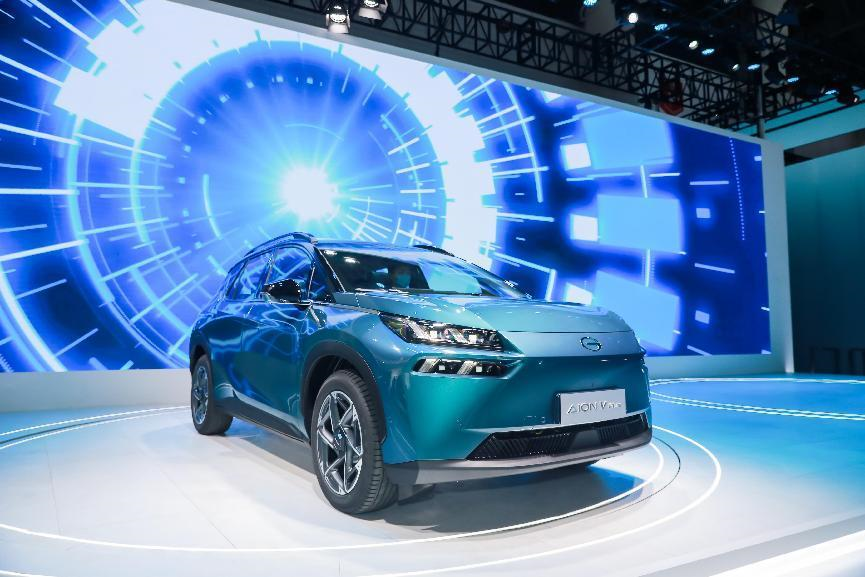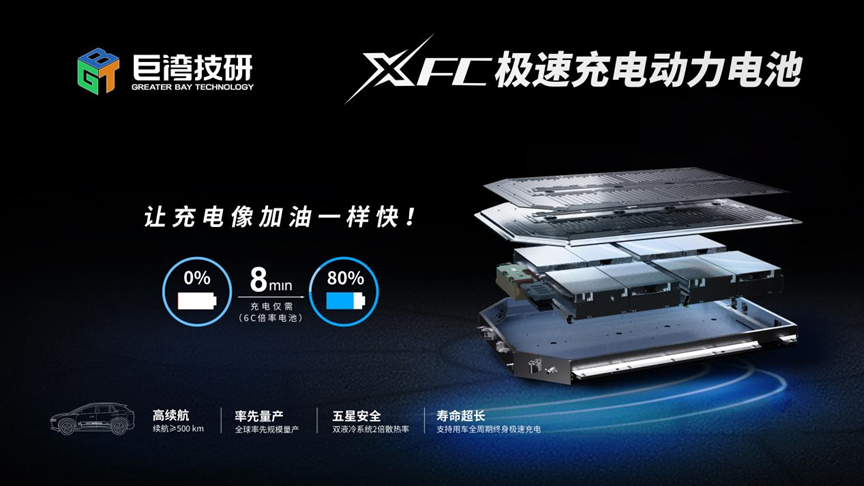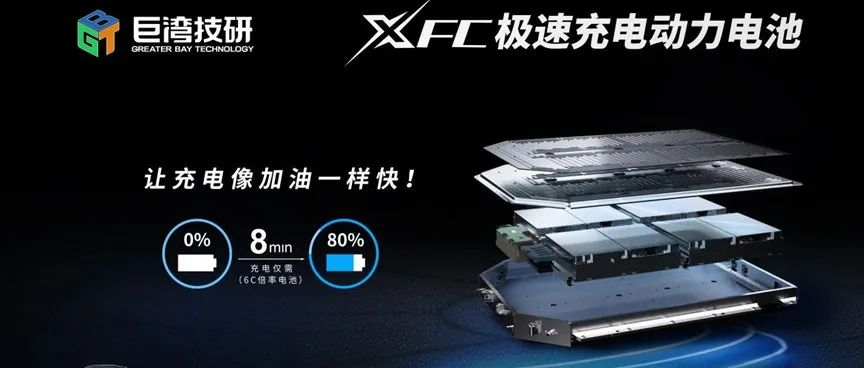By: Dandao
In the first half of 2022, the sales of new energy vehicles maintained high growth momentum. According to the China Passenger Car Association, it is expected that the sales volume of new energy vehicles will exceed 6 million units in 2022, and the electrification penetration rate will reach about 22% by the end of the year.

The boom of new energy vehicles has driven the continuous growth of the power battery market. On the one hand, automakers do not want to see the dominance of NINGDE Times, the leader in the power battery industry. On the other hand, the continuous expansion of the market has also given other battery manufacturers huge opportunities.
Among these opportunities, super-fast charging is widely favored. CITIC Securities has released a research report stating that it is optimistic about the new direction of the high-voltage fast-charging industry and recommends layout opportunities in the industrial chain.
Power battery companies have also been frequently “going on the offensive” in recent times. On August 26, at the Chengdu International Auto Show, the GAC AION V PLUS 70 ultra-fast charging version equipped with JIWAN Technology’s XFC ultra-fast battery was launched. On September 3, the launch ceremony of the XINWANDA super-fast charging power battery product was held in Zaozhuang, Shandong. On September 9th, FUNENG Technology held the “2022 FUNENG Technology Strategy and New Product Launch Conference” and officially launched a new power battery solution.
Faster charging speed will undoubtedly accelerate the penetration rate of new energy vehicles, among which JIWAN Technology has taken the lead in the industry at the fastest speed.
0-80% SOC charge in 8 minutes, JIWAN Technology is the fastest
To achieve fast charging, it is necessary to increase the charging rate. The power batteries carried by new energy vehicles, if fully charged in one hour, correspond to a charging rate of 1C. 4C is a quarter of an hour, which means that it can be fully charged in 15 minutes; 6C is a sixth of an hour, which means that it can be fully charged in 10 minutes.According to the China Electric Vehicle Public Charging Service Market Development Research Report (2022) released by Analysys, among the surveyed new energy vehicle owners, those who have an average single charging time between 0.5 and 2 hours accounted for 85.1%, and nearly 60% of respondents thought that waiting time for charging was too long.
Range anxiety has become the most critical consideration for electric vehicle owners in terms of purchasing and using the vehicles. Consequently, major car manufacturers and mainstream battery suppliers are actively promoting the upgrading of power battery charging rates from 1C-2C to 4C.
As early as September 2021, Guangzhou Automobile AION V PLUS, which is equipped with the XFC ultra-fast battery developed by Gotion, was officially mass-produced and sold globally. Its SOC charging time from 0% to 80% is only 15 minutes, making it the world’s first 3C-rate commercial battery.
At the Chengdu International Auto Show, Guangzhou Automobile AION V Plus 70 ultra-fast charge version was upgraded to 6C-rate, with its SOC charging time from 0% to 80% reduced to 8 minutes, becoming the world’s first 6C-rate commercial battery.
In comparison, BYD’s SFC480 superfast charging battery can boost the SOC from 10% to 70% in 10 minutes, reaching the 4C standard. Funeng Technology also showed three fast charging cores with 2.4C, 3C, and 4C rates, corresponding to 40%, 50%, and 70% charging in 10 minutes, respectively.
Clearly, Gotion has taken the lead in the “fast” charging rate, and most importantly, Gotion has already achieved commercialization of batteries with 3C and 6C charging rates. BYD’s SFC480 super-fast charging battery “plans to achieve mass production” this year, while Funeng “will launch the first generation of products as early as 2023”.
Comparing futures and spot markets, there is no doubt that the former is more promising.
Balancing High Energy Density and High Power Density – not only fast, more than fast
Power battery performance is not based on speed alone. Wang Zidong, the deputy secretary-general of the China Automotive Power Battery Industry Innovation Alliance, pointed out that the achievement of fast charging also requires the power battery to have a relatively high charging acceptance capability. The acceptance capability and charging completion time are inversely proportional. However, the characteristics of the power battery determine that the higher the energy density of the battery, the lower the charging acceptance capability would be.
When the US Department of Energy defines ultra-fast charging as (charging time between 0-80% of SOC within 10 minutes) for XFC, the battery specific energy needs to exceed 200Wh/kg. Therefore, to achieve high energy density and high power density simultaneously, the challenges posed by materials, battery structures, and production processes are great.
By systemically developing the design of cell materials and battery systems, Changan E-An has struck a balance between energy/power density and life, effectively improving charging rates.
Specifically, Changan E-An’s XFC fast-charging battery achieves the following:
-
Innovative materials – using a combination of specialized cell materials that were designed for fast charging. This includes high porosity ceramic diaphragms, high-efficiency electrolytes that account for high and low-temperature performance, negative electrode modification technology, etc. These materials improve the lithium ion migration rate, ion embedding rate, electrode conductivity, and optimize charging work temperature range.
-
Innovative battery systems – including the 800V high-voltage pack solution, efficient dual-liquid thermal management system, and the XFC optimal charging strategy.
-
Extremely fast charging speed – a 3C rate of 0-80% charge time of 15 minutes; and a 6C rate of 0-80% charge time of 8 minutes – and world-record certification by the World Record Certification Agency (WRCA).- Ultra-long lifespan: Under high-rate charging and cycling conditions, the lifespan of the XFC extreme speed battery exceeds 2,000 times, supporting ultra-fast charging throughout the entire vehicle’s lifetime.
-
Reliable and safe: Low internal resistance and minimal heat generation; double liquid cooling system with twice the heat dissipation efficiency; 48 hours without flames after thermal runaway is triggered.

Resolving user concerns, achieving vehicle enterprises: Jiuwan Technology Research’s “One Quick Solution to a Thousand Worries”
In today’s world where power batteries are becoming a battleground, Jiuwan Technology Research’s XFC extreme speed battery is focused on understanding consumers’ needs from a consumer perspective, and resolving them with outstanding performance to achieve vehicle enterprises.
Firstly, in terms of safety concerns, Jiuwan Technology Research uses self-developed new material combinations and considers safety issues from the initial design and material selection stages. Based on the ternary electrode fast charging test and electrochemical simulation, XFC’s optimal charging strategy was developed allowing for effective suppression of lithium deposition, SEI growth and overcharging during cycling tests. Coupled with the aforementioned excellent thermal runaway protection technology, it solves the existing safety hazards of batteries during charging and driving processes.
In regards to energy replenishment concerns, according to a research report by China Merchants Securities, the fast charging rate of most electric vehicles is between 1C-2C, corresponding to a charging time of 0.5 – 1 hour. Jiuwan Technology Research’s XFC extreme speed battery can be charged to 80% of its capacity in a short amount of time under safe and stable conditions, enabling charging of electric vehicles as quickly as filling up with petrol.
Finally, in terms of range and residual value, XFC extreme speed battery and the use of XFC charging facilities and high-voltage platforms in the entire vehicle lifecycle can achieve XFC rapid charging and higher range. Under the conditions of XFC charging cycles throughout the entire lifecycle, the effective cycle life is greater than or equal to 1 million kilometers.No range anxiety, no power anxiety, with both safety and value retention, XFC extreme fast charging battery from Juewan Technology solves the pain point of car buyers from the root.
Technological development is always gradual. XFC extreme fast charging battery from Juewan Technology, reaching the forefront of power battery technology both domestically and internationally, is the result of its forward-looking strategic layout.
Public information shows that Juewan Technology was established in September 2020. But not many people know that Juewan Technology was originally the advanced energy storage material research team under GAC R&D Center. The team has been focused on power battery field since 2014 and completed XFC extreme fast charging battery sample function testing in 2019.
It is noteworthy that the US Department of Energy defined the performance of XFC extreme fast charging in 2018. Juewan Technology has achieved the “near-term goal” set by the US Department of Energy ahead of schedule: achieving 0-80% charging time within 15 minutes by 2023.
Profound technological accumulation and early positioning have built a broad moat for Juewan Technology. In the context of the upcoming speed charging era for power batteries, XFC extreme fast charging battery from Juewan Technology will provide strong impetus for automakers to launch offensives and enhance the penetration rate of electric cars.
This article is a translation by ChatGPT of a Chinese report from 42HOW. If you have any questions about it, please email bd@42how.com.
